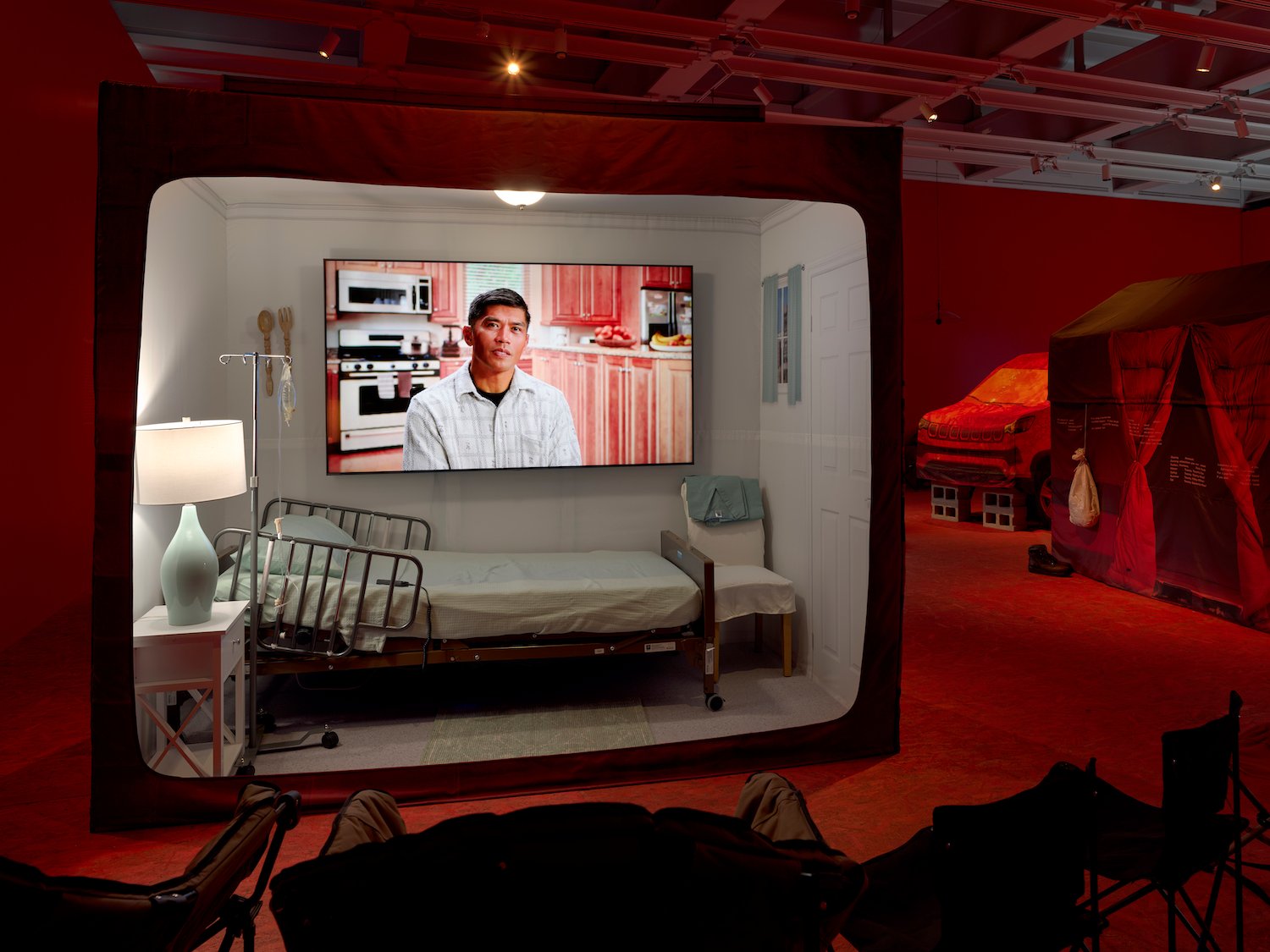
“Prescient” is a word often overused in art speak, but when it comes to the work of Josh Kline, the adjective is actually accurate.
Time and again over the last decade or so, the now 43-year-old artist has portended the ways in which nascent technologies and growing corporations would come to oppress the people whose lives they purported to improve. He’s turned Teletubbies into symbols of state surveillance; wrapped white-collar workers in plastic trash bags; and employed early deepfake techniques to make George W. Bush cop to war crimes, effectively using the former president’s penchant for historical revisionism against him.
These pieces and many others make up “Project for a New American Century,” the first U.S. museum survey of Kline’s work, on view now at the Whitney Museum of American Art. It’s a virtuosic presentation from one of the world’s most timely artists—one that captures the anxieties of our current moment even when it looks ahead.
Josh Kline, In Stock (Walmart Worker’s Arms) (2018), detail. Courtesy of the Whitney.
Included, for instance, is Kline’s film Adaptation (2019–22), which envisions, in a not-so-distant future, a group of essential workers commuting to their jobs by boat in a flooded Manhattan. There’s also his 2014 sculptures No Sick Days and Packing for Peanuts, in which 3D-printed limbs scanned from FedEx employees are imprinted with the company’s logo—an almost comical literalization of corporate exploitation.
Indeed, subtlety is not a quality for which Kline is known. Viewers won’t walk out of the Whitney show wondering what he “meant.” But this legibility is a feature, not a bug; the urgency of the artist’s themes calls for action, not equivocation. And it’s intentional: “You shouldn’t need four years of study of Lacan and Deleuze and Adorno and whoever to understand art,” Kline told the New York Times earlier this year. “I want to create an art that’s accessible to the FedEx delivery worker or a doctor who doesn’t have that specific education but is interested in the society they live in.”
See more images from Kline’s survey below:
Still from Josh Kline’s Adaptation (2019–22). Courtesy of the Whitney.
Josh Kline, Make-Believe (2017).
Josh Kline, Desperation Dilation (2016). Courtesy of the Whitney
Installation View of “Josh Kline: Project for a New American Century” at the Whitney Museum of American Art, 2023. Courtesy of the Whitney.
Josh Kline, Energy Drip (2013). Courtesy of the Whitney.
Installation View of “Josh Kline: Project for a New American Century” at the Whitney Museum of American Art, 2023. Courtesy of the Whitney.
Josh Kline, Creative Hands (2011). Courtesy of the Whitney.
“Josh Kline: Project for a New American Century” is on view now through August 13 at the Whitney Museum of American Art in New York.
More Trending Stories: